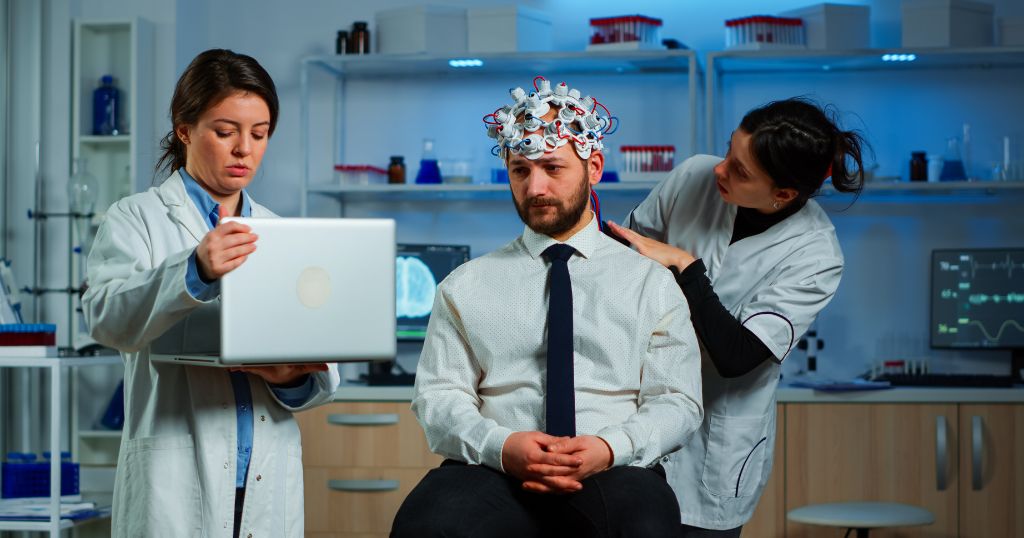Cognition affects oral health, and how we think is connected to taking care of our teeth and gums. Keeping our mouths healthy helps keep our minds sharp, and understanding this can help us live better lives.
It’s important to know how our mouth affects our brain. Good dental care can help stop problems like forgetfulness and trouble thinking clearly. When we take care of our teeth, we not only look good but also feel better mentally.
In this blog post, you will learn how caring for your teeth can help your memory and thinking. We will give you simple tips for keeping your mouth healthy and show how this helps your brain.
Understanding Cognition Affects Oral Health
Cognition is how we think and learn. It includes remembering things, making choices, and solving problems. In simple terms, cognition helps us understand what is happening around us.
Good oral health means your teeth and gums are healthy. This includes brushing teeth, avoiding cavities, and keeping your mouth clean. Taking care of your mouth is important for feeling good and staying healthy.
Oral health and thinking are linked. If your mouth is not healthy, it can be hard to remember things or think clearly. Also, if someone has trouble thinking, they might forget to take care of their teeth, which can hurt their mouth and mind.
The Impact of Oral Health on Cognitive Function
Gum disease, also called periodontal disease, can hurt brain health. When gums are infected, they become swollen, which can let harmful substances into the blood. Studies show that people with gum disease are 1.5 to 2 times more likely to have memory problems. This means they may forget things or feel confused more often than those with healthy gums.
Losing teeth can also affect how we think and remember. When people lose teeth, they might not eat healthy foods, which can harm their brain. Research shows that tooth loss is linked to smaller brain size in areas important for memory. Each missing tooth can increase the risk of memory problems by about 10%.
Cognitive Habits That Can Improve Oral Health
Being mindful can help you focus on taking care of your teeth. When you pay attention while brushing and flossing, you are more likely to remember to do it. Studies show that people who practice mindfulness are 25% more likely to stick to their dental routines.
A positive attitude can make you want to care for your teeth more. When you believe that good oral health is important, you are more likely to keep up with your routine. Research shows that setting small goals can help, as people who set goals are 30% more likely to stay consistent with their dental care.
Oral Health Problems as a Warning Sign of Cognitive Decline
Research shows that poor oral health can be linked to early signs of Alzheimer’s and dementia. For example, one study found that people with seven or more missing teeth scored lower on memory tests. Dentists can spot early signs of cognitive problems during regular checkups by noticing changes in how well a person cares for their teeth.
Regular dental visits are very important, especially for older adults. These checkups can help find oral health problems early, which may affect brain health. Studies show that good oral care can lower the risk of Alzheimer’s disease. By including dental care in health checks, we can better protect our minds as we get older.
How Poor Oral Health Can Negatively Impact Mental Health
Dental issues like tooth loss, bad breath, and infections can hurt how we feel about ourselves. Many people feel embarrassed about their teeth, which can lead to low self-esteem and social anxiety. Research shows that poor oral health is linked to depression; for example, people with depression are 20-30% more likely to lose all their teeth.
Having a healthy smile can boost confidence, while an unhealthy smile can lower it. Studies show that people with good oral health feel more confident. Those with healthy teeth are 38% more likely to feel good about their appearance. Taking care of our teeth helps improve both our smiles and our mental well-being.
How a Holistic Approach Can Improve Both Cognitive and Oral Health
Dental professionals can work with mental health experts to help patients better. When both dental and mental health issues are treated together, it can lead to better overall health. For example, dentists might notice signs of anxiety or depression during checkups and can refer patients to mental health services. Taking care of both areas at the same time is important for good health.
What we eat is important for both our brain and teeth. A diet full of fruits, vegetables, and whole grains helps keep our teeth strong and our minds sharp. Foods rich in vitamins, like B12 and omega-3 fatty acids, are especially good for brain health. Studies show that people who eat healthy feel better mentally. To improve both brain function and oral health, focus on eating a variety of healthy foods and drinking plenty of water.
Conclusion
In this post, we discussed how oral health and brain health are connected. Poor oral health can lead to low self-esteem and depression while thinking problems can make it hard to care for our teeth. Healthy teeth often mean better confidence and mental health. Regular dental visits and a good diet are important for both.
We encourage everyone to take care of their teeth and mental health. This includes visiting the dentist, eating healthy foods, and being aware of your feelings. More research is needed to understand the link between oral health and brain health better, which can help us all stay healthy as we age.
FAQs
Can stress cause dental problems?
Yes, stress can cause dental problems. It can make you grind your teeth and lead to gum disease.
How does cognitive decline affect oral hygiene?
Cognitive decline can make it hard to care for your teeth. People may forget to brush or floss, leading to more cavities and gum disease.
What is the link between oral health and Alzheimer’s?
Oral health and Alzheimer’s disease are connected. Poor dental care, like gum disease, can increase the risk of Alzheimer’s and make memory problems worse.
How can I use mindfulness to improve my oral health?
You can use mindfulness to improve your oral health by focusing on brushing your teeth. Pay attention to how the brush feels and the taste of the toothpaste.
What role do caregivers play in maintaining oral health for dementia patients?
Caregivers are important for the oral health of dementia patients. They help with brushing teeth, remind them to care for their mouths, and take them to the dentist.







